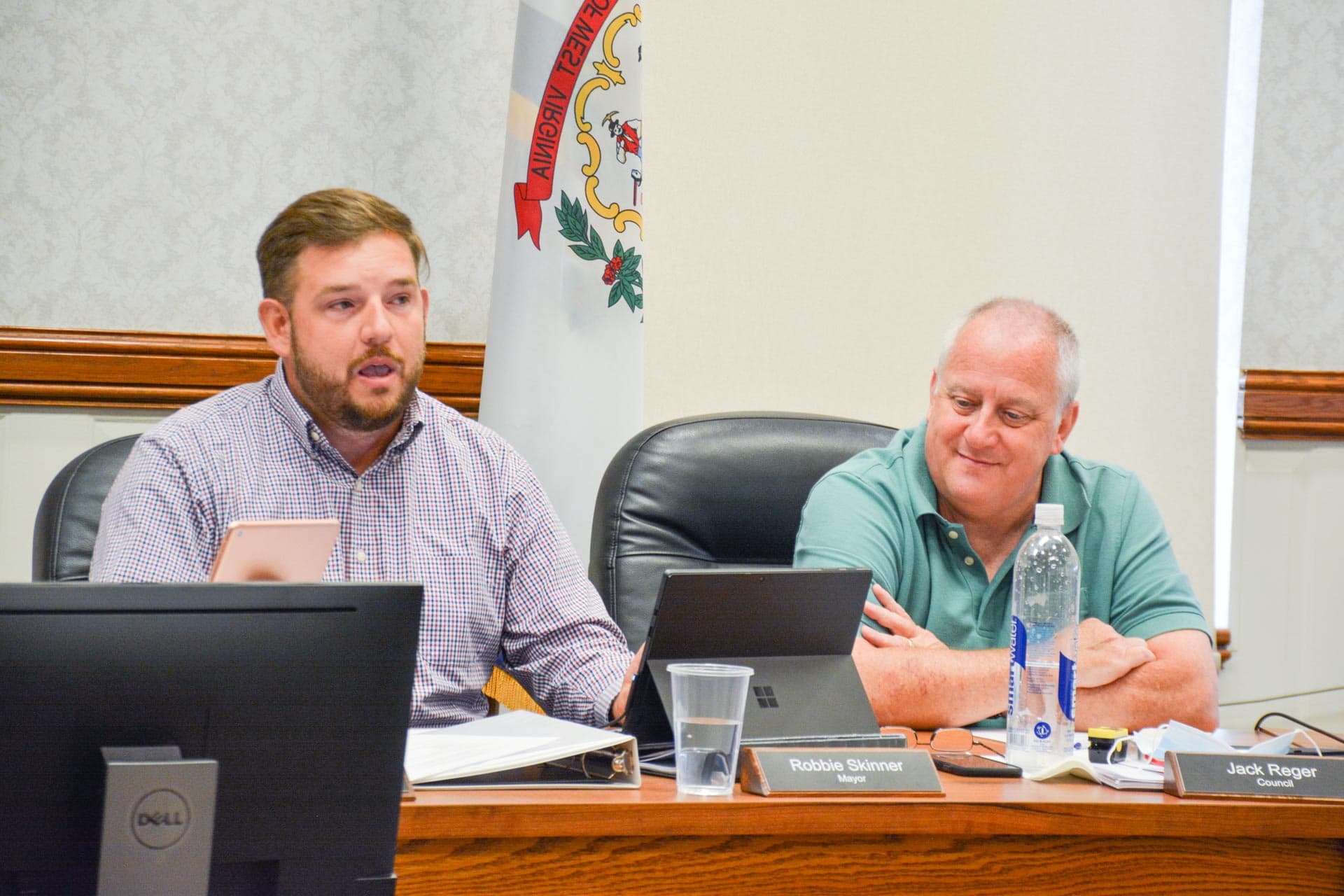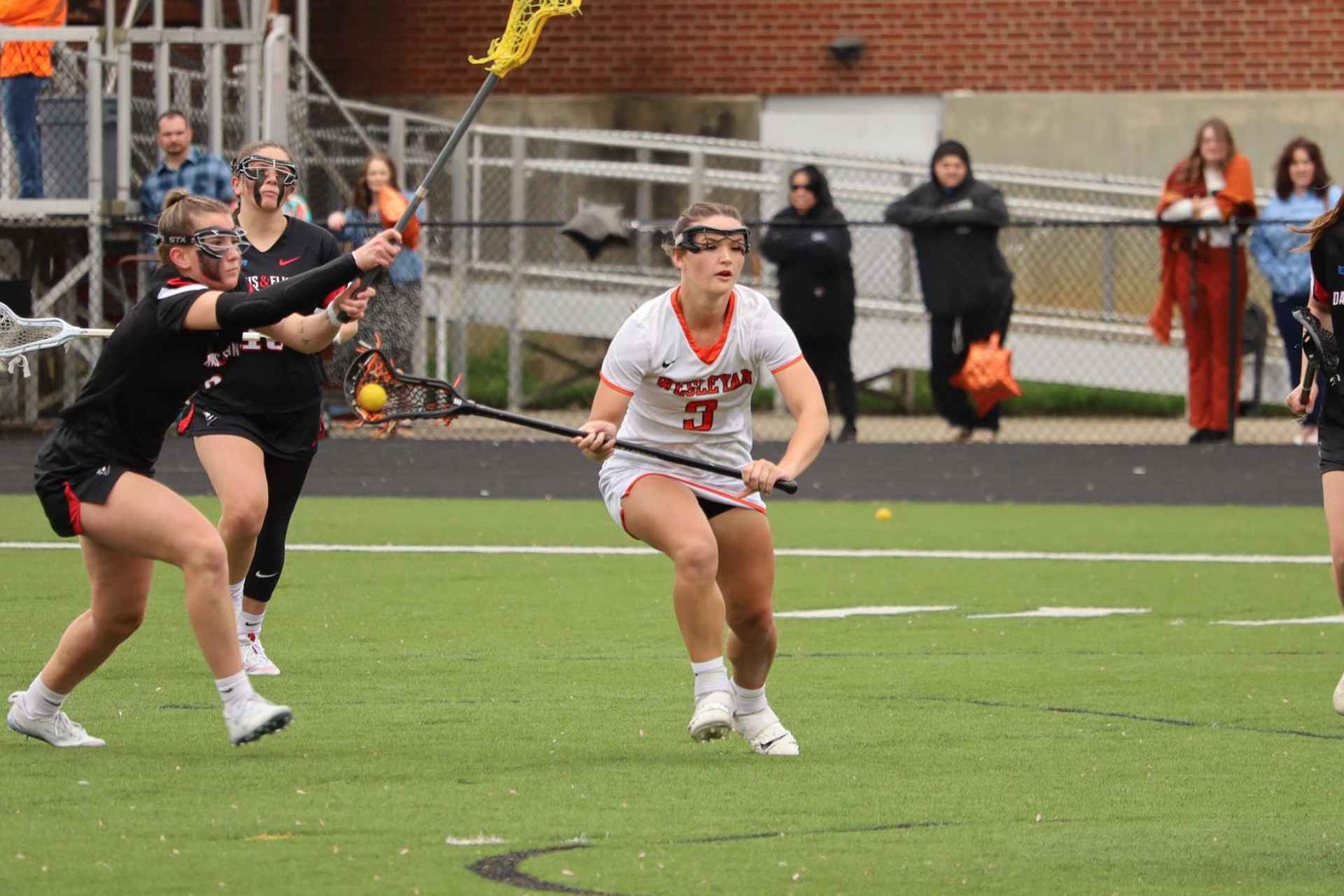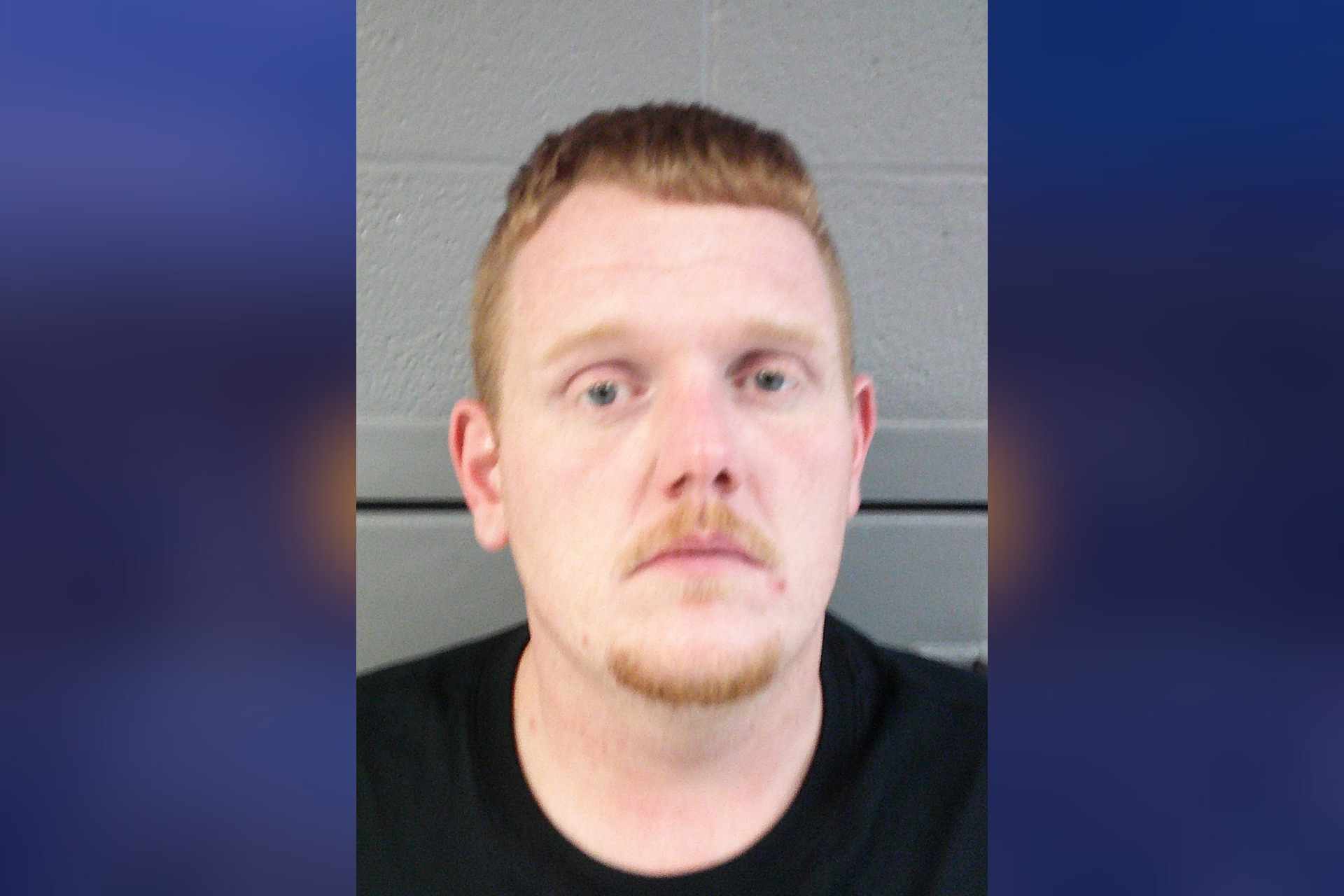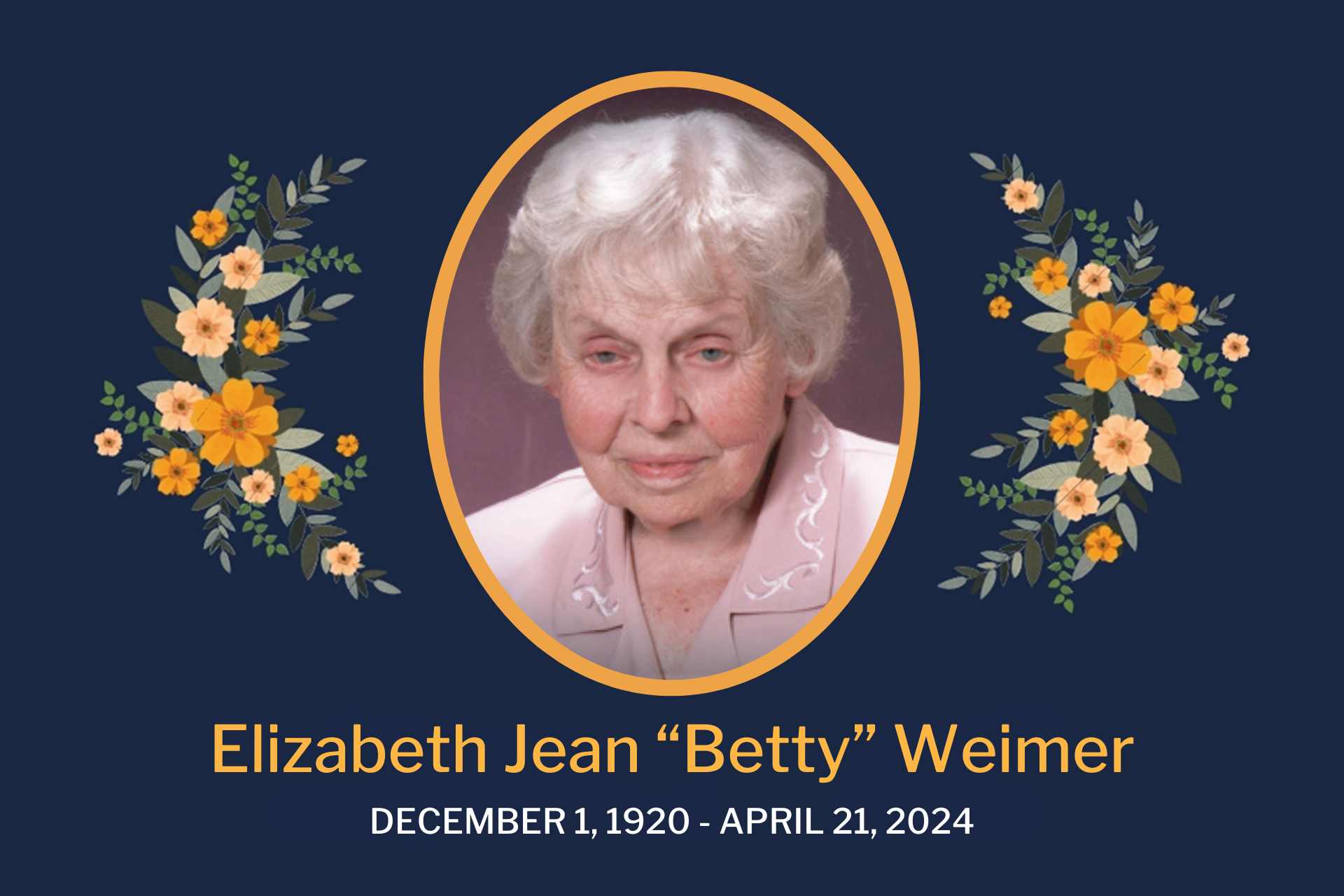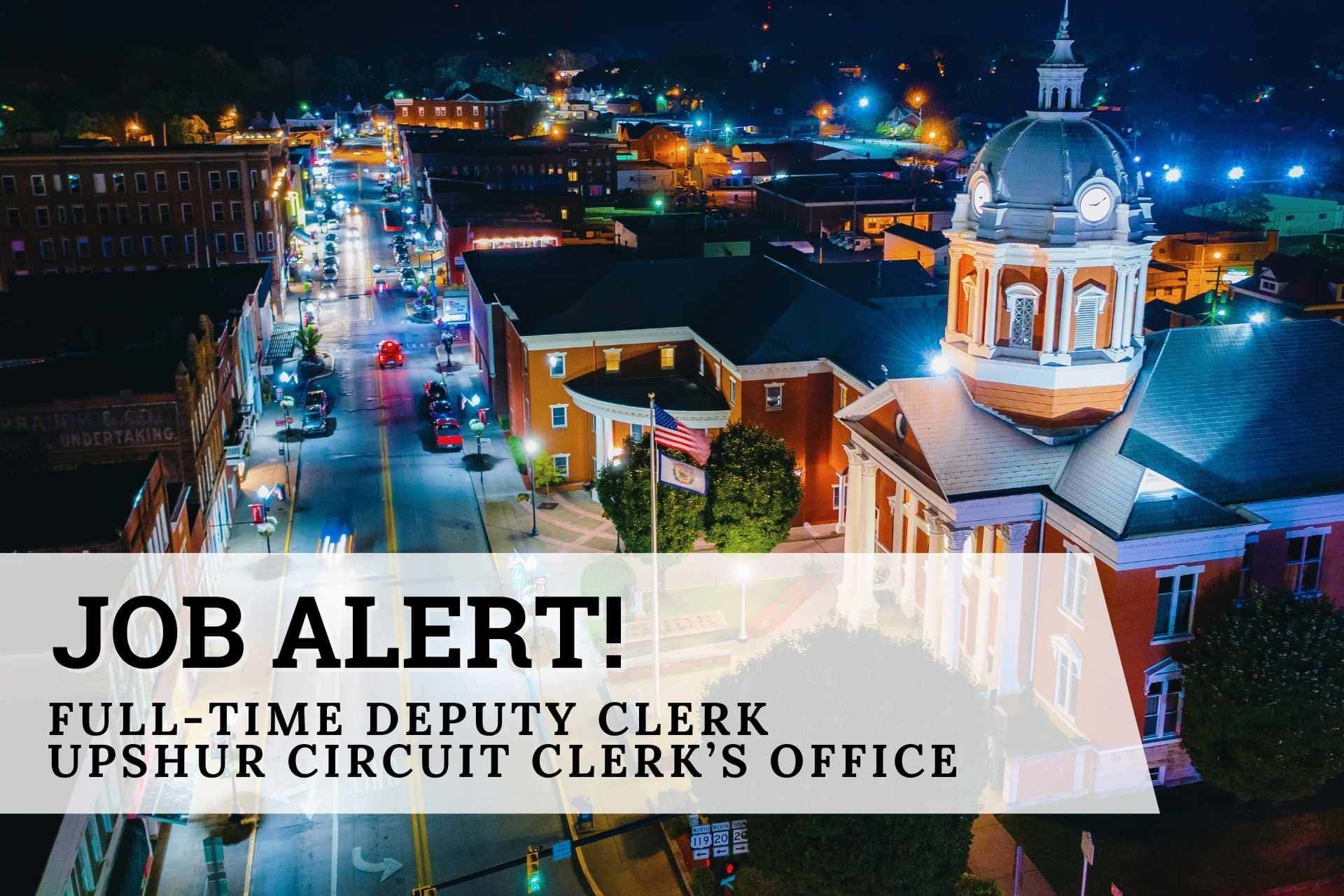BUCKHANNON – By a single vote, Buckhannon City Council on Thursday approved the hiring of three additional career firefighters, increasing its ranks from six to nine paid staff, plus a chief.
Following more than an hour of discussion at July 8’s special council meeting, mayor Robbie Skinner broke a 3-3 tie, voting in favor of hiring the three paid firefighters at a cost of about $187,000 in salaries and benefits annually. The new firefighters will be compensated out of the city’s general fund, at least for now, pushing the overall fire department budget over $1 million per year.
Although the question of whether the new positions would be funded has been resolved, council is still at odds over how they’ll cover the cost of the new positions long-term.
While some council members and Skinner have supported using the city’s general fund, with its 1 percent sales tax, to bolster the fire department’s budget, other council members have pressed for establishing a first-due fire fee; raising the fire fee within city limits; or working with the Upshur County Commission to increase the county fire fee since the discussion began in February.
Ahead of the vote, city recorder Randy Sanders said he would vote to approve the new hires. However, Sanders specified that should the measure pass, he planned to publicly ask the county commission and the Upshur County Fire Board to meet with city officials about how the commission, county residents or both might contribute financially since the city fire department is the only fire department staffed 24/7 with paid firefighters and provides emergency services outside city limits.
At prior council meetings, Buckhannon Fire Chief J.B. Kimble has stated that while 60-70 percent of calls the city fire department responds to are in municipal limits, the other 30-40 percent are outside the city, often in the ‘first-due’ area – i.e., the area outside Buckhannon’s boundaries that is the department’s primary responsibility.
According to state code, cities can charge residents who live in its first due area up to one-and-a-half times what city residents pay monthly in fire fees, which is $3, to help cover the costs of providing services to those areas. (Residents would pay the first due fee to the city in lieu of the $25 fire fee currently charged annually to county residents.)
After councilwoman Pam Bucklew made a motion to approve the new hires, which was seconded by councilman Jack Reger, Sanders invited the media to track the city’s progress as it approaches the commission and Fire Board about working collaboratively to reach a compromise regarding funding fire services countywide.
“The first due fire fee has to stay on the table [as a possibility],” Sanders said. “I don’t want this motion to go down because we’re tying [the new hires] to the first due fire fee … but it’s not fair to the fire department to hold them up any longer because it’s something that has to be negotiated between the city council, the county fire board and the county commission – that’s our job.”
“We have a lot of work to do,” Sanders added, “and I would invite the cameras [the media] to continue to follow the work we have to do with the county fire board, with the county commissioners.”
Sanders said he was hopeful about working with the county.
“I have a lot of optimism, and I think if the public focus remains on us and remains on the county commissioners and remains on the county Fire Board and people care and people pay attention, there’s a lot of opportunity for reasonable minds to be shown to the community and very good decisions can be made for everyone within the city limits, within the county lines, that will benefit everyone.”
A roll call vote resulted in Bucklew, Reger, Sanders and Skinner supporting the motion to approve the new hires with no funding stipulations attached, while councilman CJ Rylands, councilman David Thomas and councilwoman Mary Albaugh voted against the motion.
Skinner stated he believes the city is capable of funding the additional $187,000 annually with sales tax revenue.
“The implementation of the 1 percent sales tax was to help even the playing field of county residents paying for city services – that’s why we did this,” Skinner said. “Those were the discussions that were had … I have a problem with right this second going after a first due fee when we are blessed.”
However, Rylands, Thomas and Albaugh cited concerns about using the sales tax money to fund a recurring expense that could ultimately cost city taxpayers millions of dollars. Rylands said he would vote for the new hires on the condition that a long-term dedicated revenue stream – i.e., a first-due fee, for instance – was enacted.
“I’ve heard some other council members say that there’s no need for a first-due fee because we currently have the capital – the money — in our accounts,” Rylands said, “but this is a permanent increase that’s going to recur every year without any new revenue stream. I understand the potential consequences it has out in the county, but I have difficulty in allocating this money permanently – over 10 years with inflation, this is $2 million. And it’s going to stay with us forever.”
The county commission and Upshur County Fire Board have previously expressed concerns about the impact a first-due fee would have on the other six all-volunteer departments. That’s because if a first-due fee is implemented, residents in the first-due area would pay a fee to the city instead of the Upshur County Fire Board. During Thursday’s meeting, Kimble estimated each department could lose $12,000 to $15,000 annually.
“I do know what a first-due will do to the other fire departments, and I don’t know if the county [commission] is in a position to help them if we do that,” Kimble said.
Rylands said he understood the concern about the volunteer departments but emphasized city officials have a fiduciary responsibility to pinpoint a viable, long-term funding mechanism.
“Over my lifetime, I’ve been in situations where revenue increases and spikes and I’ve increased expenses to match it or made investments … and then the revenue drops and I’m left dealing with the consequences of that,” he said. “If we know one thing for sure, it’s that things change.”
“Without a revenue stream, this seems risky and has the potential for putting us in a bind at some future date,” Rylands added. “I’m a handshake kind of guy — if this council supports the first due, then I support this initiative but if we don’t have that support, then I don’t support hiring them.”
Thomas said he would be on board with using sales tax revenue for about one year but no more.
“City residents subsidize the people in the first due area to a large degree, and I don’t think that’s fair,” Thomas said.
Following the vote, Rylands asked that consideration of the first-due fee be placed on the agenda of council’s first meeting in August, but Skinner said he wanted more time to build consensus.
“When we have the consensus and we’re ready to move forward I will support putting it on the agenda,” the mayor said.
“That could be indefinitely,” Rylands replied. “This is not going to get resolved overnight, but if we don’t have these difficult conversations and take some kind of action, then here we are again.”
Following adjournment Skinner thanked council for supporting the hire of the additional firefighters.
“This is a worthwhile investment,” he wrote in an email to My Buckhannon. “Although I am willing to facilitate the discussion, I do remain opposed to implementing a first due fire fee on the citizens and businesses of Upshur County outside of Buckhannon City limits.”
